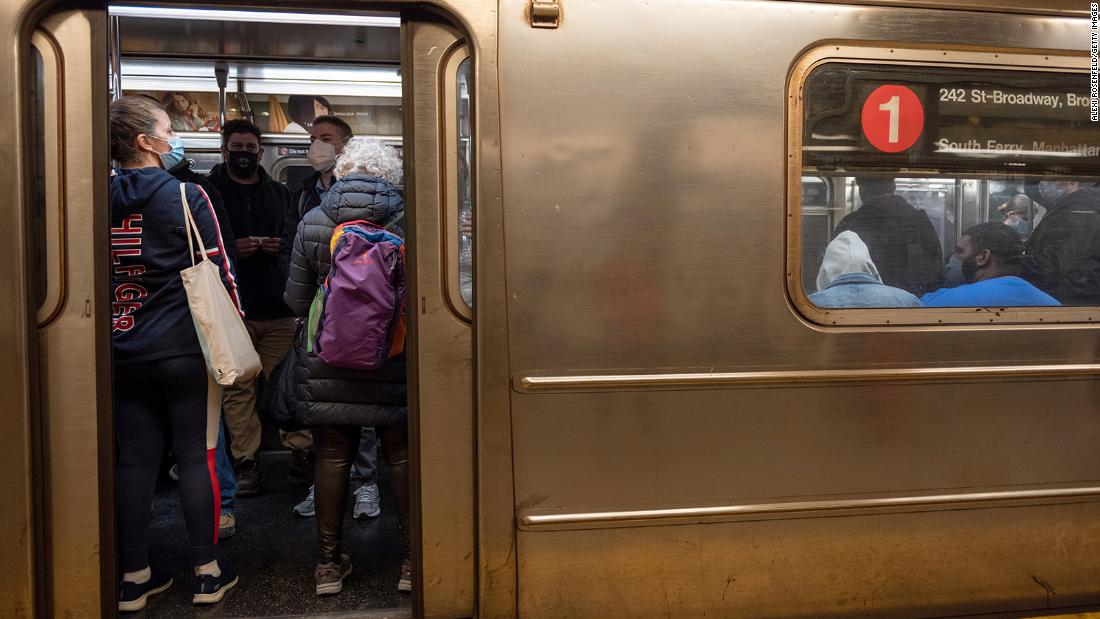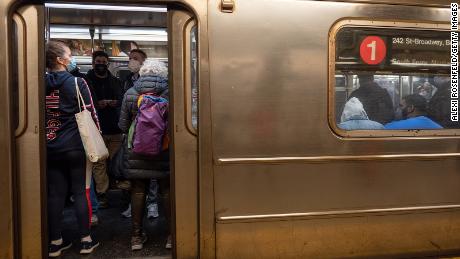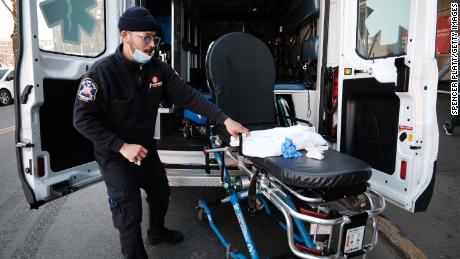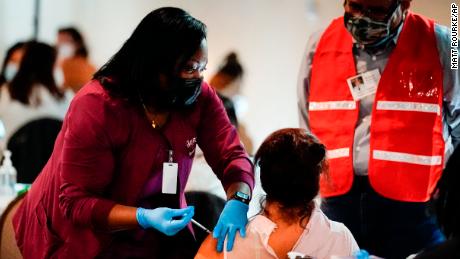The B.1.1.7 variant is more contagious and may cause more severe disease, an epidemiologist says. Recent research suggests it may also be more deadly.
“If we can just hold out, if we can just get enough vaccine between now and the summer, we can actually beat this one,” Osterholm said. “But… we’re impatient.”
The variant has already fueled dangerous increases in other countries.
In France, where health officials warned last month the variant was rapidly spreading, more than 5,000 Covid-19 patients are now in ICUs — for the first time since last April. Turkish officials reported the highest daily case counts since the pandemic’s start, with most of those infections caused by the B.1.1.7 variant. In Canada, the strain has led to more infections and hospitalizations, with officials reporting rising numbers of severe illnesses, including in younger patients.
“The trajectory of the pandemic in the United States looks similar to many other countries in Europe, including Germany, Italy and France looked like just a few weeks ago,” CDC Director Dr. Rochelle Walensky said Monday.
“In the United States it’s going to be totally up to how much are we going to open,” said Osterholm, who noted the US is the only country that is easing safety measures while the B.1.1.7 variant is spreading. “In a sense, we’re creating the perfect storm.”
That, Osterholm said, could mean more lives lost.
Governor says ‘no thank you’ to mask mandate
Health officials including Walensky have urged Americans to keep masking up and have stressed that some states may be opening up too quickly at a critical time.
“No thank you, Mr. President,” he added.
“I’ve talked to a number of restaurant owners who will continue requiring masks within their restaurant for the safety of their employees and patrons,” the governor said. “Please be respectful and mindful that, while the mask mandate has been lifted, many businesses will continue to require it.”
Alabama Gov. Kay Ivey will also move ahead with her plan to end the state’s mask mandate next week, a spokesperson for the governor told CNN this week.
“As Governor Ivey has previously stated, Alabama’s mask mandate ends April 9. We have made progress, and we are moving toward personal responsibility and common sense, not endless government mandates,” spokesperson Gina Maiola said.
More leaders ease restrictions
More leaders also announced they were easing restrictions.
“While COVID-19 and its variants remain a major public health risk, using the tools of vaccination, masking and distancing, we can keep ourselves and our loved ones safe,” Edwards said in a statement.
Among those moving to a less restrictive tier are Los Angeles and Orange counties, which will now be designated as having a moderate risk level.
Bars that don’t provide meals will be allowed to open outdoors with certain safety measures, restaurants will be allowed to increase indoor-dining capacity and movie theaters, retail stores and personal care services can also all increase capacity.
“There is much to be optimistic about,” Barbara Ferrer, the county’s public health director, said in a statement. “However, we cannot let our guard down. Another surge here would be dangerous and stop our recovery progress. We would move swiftly to introduce measures to limit transmission and these measures would have us stepping backwards.”
About half of US seniors fully vaccinated
Experts continue to urge vigilance until enough people can be vaccinated and protected against the virus to suppress its spread.
About 96 million people have received at least one dose of a vaccine — roughly 28.9% of the US population — and about 53.4 million are fully vaccinated, CDC data shows.
Just under half of the country’s 65 and older population — 49.8% — are fully vaccinated and more than seven out of 10 seniors in the US have received at least one dose, the data shows.
Pfizer’s Covid-19 vaccine is the only one available for use by people who are 16 and older, while the Moderna and Johnson & Johnson vaccines are restricted to people 18 and older.
CNN’s Pierre Bairin Dan Merica, Deidre McPhillips, Sarah Moon, Dave Alsup, Jamiel Lynch and Betsy Klein contributed to this report.
![]()








